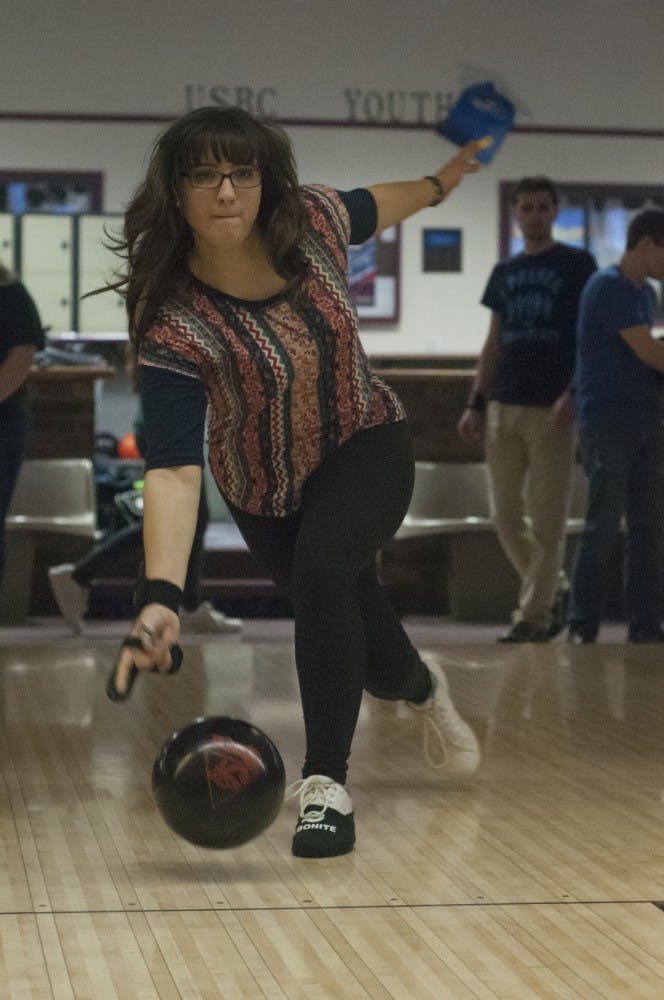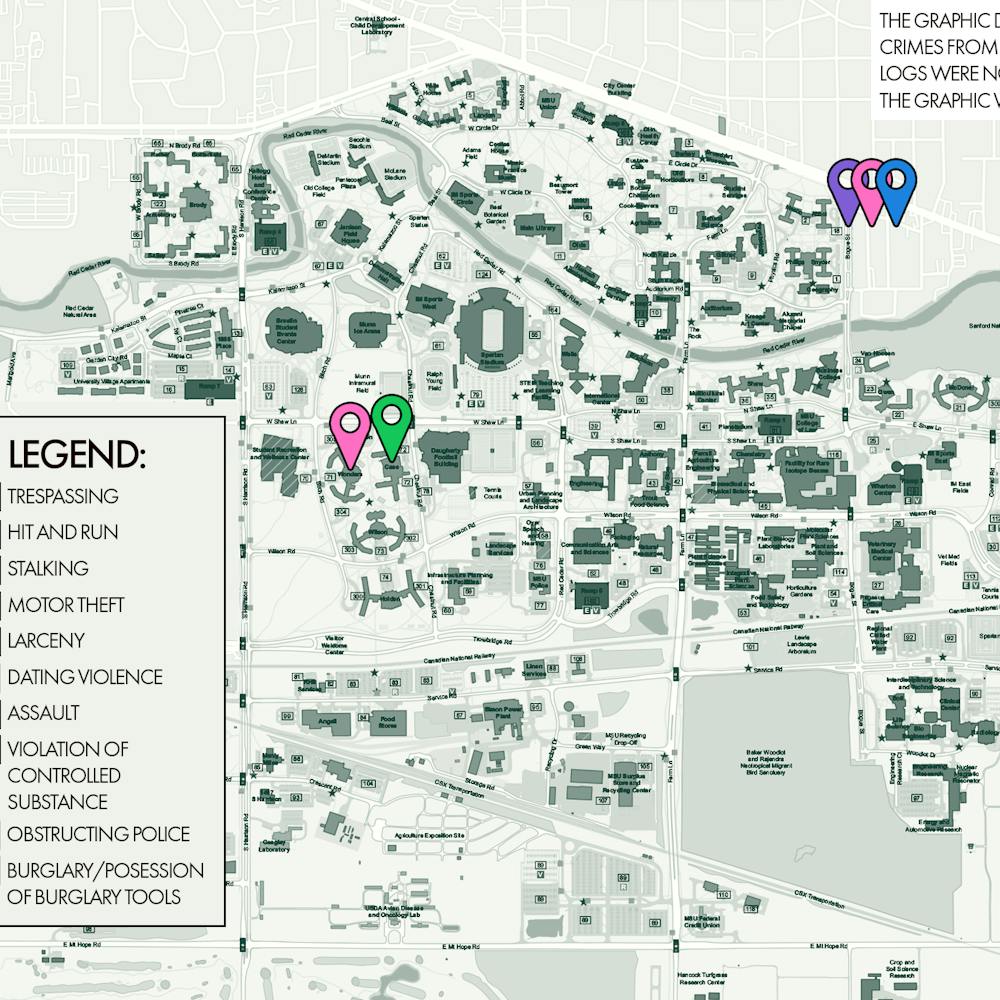Oiled and polished, the MSU Intercollegiate Bowling Program provides a competitive way for students to continue the sport of bowling at a collegiate level.
The MSU Intercollegiate Bowling Program teams compete in tournaments, with the most recent being the Adrian College Open in Adrian, Mich. Other tournaments are held in the surrounding Great Lakes states, with the championships being held in Baton Rouge, La.
For some team members, the thought of bowling for this long into their college career didn’t seem likely.
Kinesiology freshman Shokhari Tate first started bowling in high school as a second sport to football in order to not take any gym classes.
“I was just average at it at first, then something just clicked in me,” Tate said.
Tate said he made more progress through his sophomore year, eventually making it to states, becoming an all-conference bowler his junior year, and all-conference and all-regional his senior year.
Aaron Radner, accounting senior and captain of the men’s team, started bowling in leagues when he was little, and continued throughout his four years of high school.
“In high school ... we practiced three or four times a week and I got better every year just from bowling a lot and learning from older guys,” Radner said. “When I got to college, kind of the same thing, my first couple of years I learned form the juniors and seniors, and now I’m the guy teaching.”
Radner said being the captain of the men’s team brings a couple challenges.
“It’s tough sometimes because you’ve got to worry about yourself, too,” Radner said. “I learned a lot my first few years from the senior (captain) and I try to pass that down.”
Like Tate, Jennifer Walker, English senior and captain of the women’s team, didn’t start bowling until the winter semesters of her junior and senior years of high school, she said.
“High school was a lot more different in that tournaments were smaller,” Walker said. “They were competitive but they weren’t as demanding.”
Walker said in high school her team didn’t get to bowl with the men’s team.
“In high school, we really didn’t get that opportunity,” Walker said.
Another good aspect of bowling at the collegiate level, compared to high school, is the level and amount of coaching you receive, Walker said.
“I think with that additional coaching experience instead of just volunteers coming in or friendly people from around the bowling alley ... actually having somebody to coach us has really improved my game,” Walker said. “Especially since I’ve only been bowling for a couple of years in total.”
However, Tate said sometimes people don’t really consider bowling a sport.
“This takes a lot out of you,” Tate said. “A lot of people think since you can pick up a ball and throw it up when you’re hanging out with your friends, you can do it at the next level.”
Tate said even though football was his main sport, bowling was the more difficult of the two.
“Bowling would have to be my more mentally tough sport because ... your worst enemy out there is your oil and you can’t see that,” Tate said.
Tate said the amount of oil on the lanes can affect a bowler’s spin, which can then affect the type of ball they decide to bowl with.
“If you get on a bad streak, you’ve got to snap yourself out of it and it’s really not all that team-oriented,” Tate said. “I mean, you have a team behind you, but at the end of the day it comes down to you and the lanes.”
In the end, Walker said the MSU Intercollegiate Bowling Program has allowed her to feel more comfortable and urges people to come and try out for the team, both men and women.
“We really need a lot more bowlers and it would be great to have a lot of people,” Walker said. “It’s a lot of fun.”







